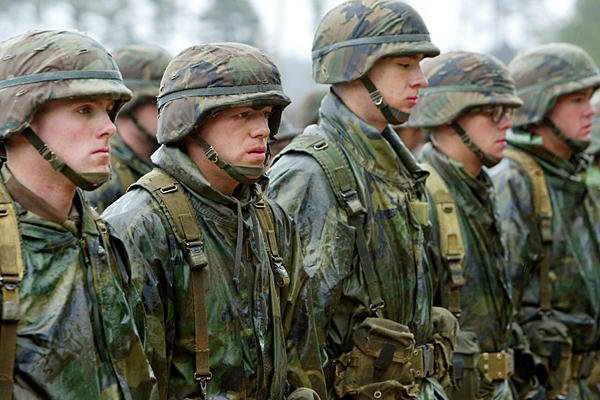No Draft, No Accountability, Endless War

The tragic deaths of 16 Afghan civilians, allegedly at the hands of American Staff Sgt. Robert Bales, has served as yet another reminder that war takes its toll on all involved parties, and that the risks to our men and women go well beyond the battleground. With the all-volunteer military, our nation has self-limited the involvement of most of its citizens in defending the country, and has essentially left that job in the hands of less than one percent of the population. For the rest of us, war is simply an abstract concept that is portrayed each night on television in a manner no different than most fictional programming.
I wrote in this space two years ago that – as a veteran – I would prefer to see national service made a requirement for able-bodied men and women, much as it had been for major conflicts through Vietnam. The Bales case has once again raised the issue because this soldier was on his fourth deployment to either Iraq or Afghanistan in the past eight years and was likely suffering from some form of either PTSD (post traumatic stress disorder) or a traumatic brain injury.
Yesterday’s New York Times opinion page carried a range of commentary on this very issue, including thoughts by retired military, politicians and policy analysts. In his essay, Lawrence J. Korb, a former assistant secretary of defense in the Reagan administration and a senior fellow at the Center for American Progress, reminds us that the all-volunteer military was never intended to fight wars on multiple fronts – if at all.
“The all-volunteer force is, as the Joint Chiefs of Staff told President Ronald Reagan in 1981 when he was on the verge of reversing President Carter’s decision to reinstitute draft registration, a peacetime force. When this nation gets involved in extended conflicts, Selective Service must be activated or else the strain on the all-volunteer force will be too great.”
Korb goes on to say that calling up civilians registered with selective service would have “forced the American people to ask questions about the necessity for, or potential costs of, the wars,” and would have permitted each soldier more recovery time between deployments.
Retired Air Force General Charles J. Dunlap, Jr., counters that the all-volunteer military works, “and few in uniform would relish unwilling draftees in their ranks.” This is a weak argument in my view because the history of citizen-soldiers in this country is a noble one, and draftees provide a needed balance to full-time military professionals.
Dunlap goes on to argue that the absence of a draft is not the problem in our current situation, whereas a strategy that puts large numbers of troops on the ground in a foreign nation is.
“If we must do these missions, we need a strategy that involves only a small number of highly trained troops on the ground, that leverages technology not just to fight from afar, but also to train and advise,” he wrote.
Congressman Charles R. Rangel (D-NY), a decorated veteran of the Korean War, sees it from a political perspective:
“Since an all-volunteer military has been established in 1973, our nation has been making decisions about war without worry over who fights them.”
Rangel, who is author of a bill to reinstate the draft notes that “the 2.2 million members of armed forces in the active military, National Guard and Reserve -- which is less than 1 percent of the American population -- have become a virtual military class who are unfairly carrying the burden of war.”
In my Veteran’s Day piece from April 2009, I concluded:
“Today, looking over the landscape of American military service, I wish more non-professionals were part of our armed forces. I believe deeply that the country, our government and our young people would all be better off with some requirement for national service.”
I hold that belief even more strongly today.




